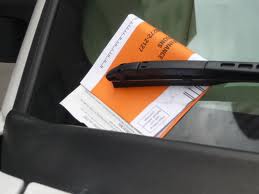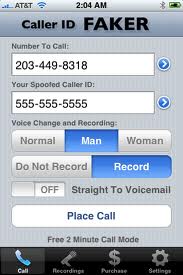

Imagine this: You just sit down for dinner. Your family is gathered around the table. There is a slight moment of anticipation before the initial “dig in” and RING, RING, RING! Your phone goes off. Oh great…someone is calling…during dinner…and it is probably a telemarketer. You answer the phone with that somewhat surly tone reserved for solicitors, and start to wonder what the point of the “do-not-call list” even is? However, it turns out this time, it is NOT a telemarketer…it is the police and you need to pay them money or be arrested. What?
For the past few weeks, a handful of states have been targeted by this new phone scam. So far the four states that have reported such attacks are: Kansas, Georgia, Oregon and (you guessed it) Florida. These scams were brought to light in a Consumer Alert by ABC’s News 10 and at the behest of Flyod County Sheriff Deputy Jerry Duke, Kemp, Ruge & Green Law Group is doing our part to spread the word about this scam. In this post, we will discuss how this scam works, what tricks are used and how you can protect yourself from these predators.

The phone scammers call up everyday people and accuse them of committing minor infractions. They accuse people of failing to pay back a debt, skipping out on jury duty, failing to pay a parking, etc. They use small infractions because these are the types of infractions honest, good natured people may have slipped up on. It is possible, we may have missed a jury notice or forgot to mail in a parking ticket, but not a bank robbery. So the scammers play the odds and prey on the most plausible violations.
After planting a seed of doubt with the person, the scammer proceeds to aggressive, bullying tactics. The scammer proceeds to tell the person there is a warrant out for his arrest, and he will be thrown in jail immediately. The only recourse to avoid being sent to jail is to pay the fine immediately.
Now, some of you reading this blog, may not find this scam very believable. Like most scams,, this setup definitely has a certain “something fishy is going on here” vibe to it, so why would anyone fall for it? Well, one woman, Amanda Middelton did, and after hearing her story, everyone should have a better appreciation for just how effective this scam can be.
Middelton got a call from these scammers in the same way discussed earlier in this post. She was told she had an unpaid debt, and she had a warrant out for her arrest. Middelton, no obvious sucker, did not simply acquiesce to the scammers. She called her creditors, and she found that there was no evidence of any debt. When the scammers called back, she told them this, and then told them to email her proof of their claim.
How did the scammers respond? They escalated the problem and manipulated her fear.ID FakerRather than email proof, (because they had none) the scammers said “in our eyes, you are just refusing to pay the debt. We’re just going to have to proceed forward and have you arrested.” During this conversation, Middelton’s husband took the number from the Caller ID and tracked it. Sure enough, it matched their local Sheriff’s Office.

At this point, Middelton is having to worry about getting arrested, being thrown in jail and (because the number on the Caller ID matches the number for the Sheriff’s Office) now everything looks very legitimate. Though it does not make sense for police to operate this way, do you think the average citizen knows for sure? Would you risk it? Most do not. They gladly pay the few hundred (or in some cases) thousands of dollars to move on from this nightmare.
Unfortunately, phone scammers are very difficult to even find, much less prosecute.
It is very easy to fake Caller IDs. There are multiple websites like this one, that allow the most technologically-impaired people to fake Caller IDs.. And, since the scammers require their payments to be either wire transfers or prepaid credit cards, they are almost untraceable. Therefore, your best bet to keeping your money is to prevent them from ever getting it in the first place. Here are a few tips to help out:
1. Police do not call people to notify them about arrest warrants, and they do not accept money to get rid of them. If you are ever worried there might be a warrant out for your arrest, find out what to do from Pasco County Criminal Defense Attorney Michael Kenny.
2. Do not just look up the caller id number on the internet, as this can be faked. Call the number back, and ask to speak to the person the scammer is claiming to be. If the Sheriff’s Office is the number being faked, call them and ask what is going on. This simple step could avoid a lot of problems.
3. Do not ever be in a rush to send money over the phone, especially if it involves a wire transfer or a prepaid credit card. Whenever those methods of payment are involved, a GIANT RED FLAG should pop in your mind. It is highly unlikely there is a credible reason for ONLY accepting these types of payments. Generally, these payments are the only ones accepted, because they are very difficult to trace, and thus, make spammers’ lives much easier.
We hope these consumer tips reach you and your loved ones before any of you suffer any losses. Please, spread the word about this consumer alert to the people in your community. The more we spread the word, the more people we protect.
As always, if you or anyone you know needs an attorney contact us today.
-
April 24, 2024
Wrongful Death in Deltona, Florida -
April 24, 2024
Navigating Bicycle Accident Cases in Deltona, Florida -
April 24, 2024
Distracted Driving in Deltona, Florida
Contact Us
About Your Case
We're ready to fight on your behalf. Request a free, no-risk consultation with our attorney's today.



